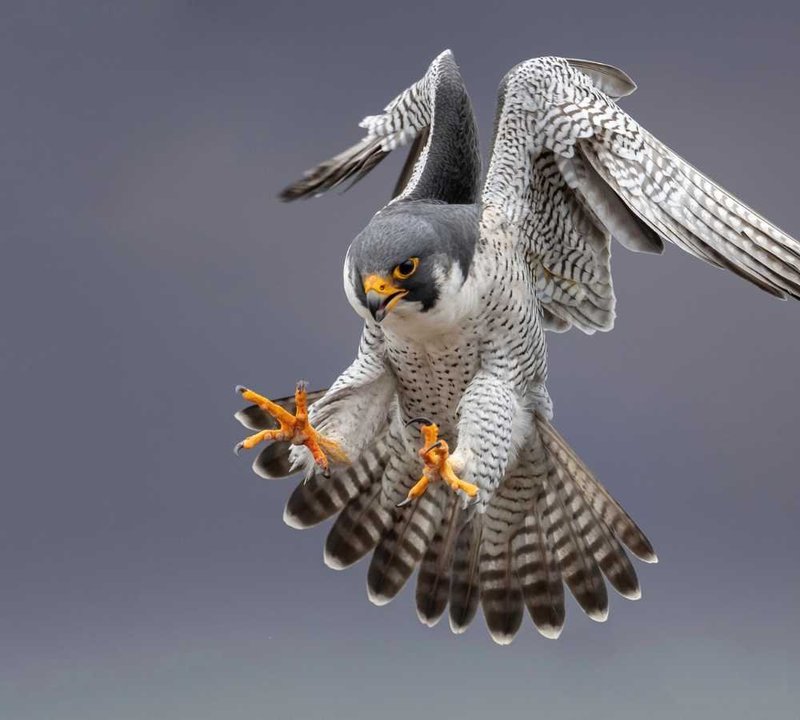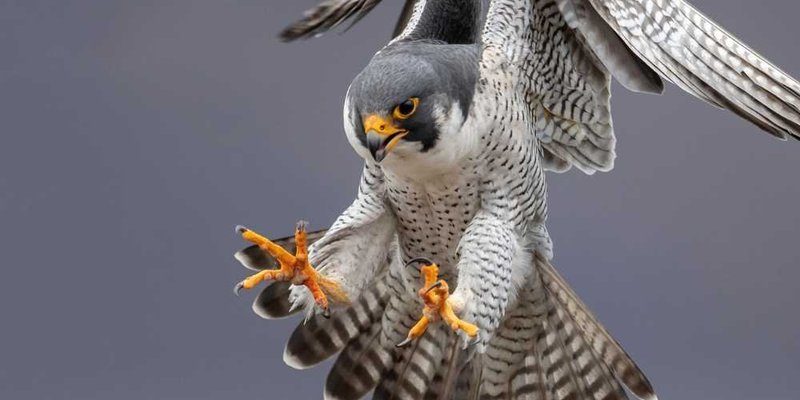
Let’s think of it this way: encountering a falcon is like finding a rare gem. It’s special, awe-inspiring, and somewhat intimidating. So, if you suddenly spot a falcon perched on a branch or gliding overhead, take a moment to appreciate the moment but also consider how to act. This guide will walk you through everything you need to know about encountering a falcon in the wild, from observations to safety tips and beyond.
Understanding Falcons and Their Behavior
Before diving into what to do during an encounter, it’s helpful to know a bit about falcons themselves. Falcons are part of the bird family *Falconidae*, and they have some unique traits that set them apart from other birds of prey. One striking feature is their incredible eyesight, which allows them to spot prey from great distances. Falcons are also known for their impressive speed. The Peregrine Falcon, for instance, is famed for being the fastest animal on the planet, diving at speeds over 200 miles per hour!
When you see a falcon, you might notice it perched quietly, scanning the ground, or soaring high in the sky. They can be solitary or part of a small family unit. It can be a bit nerve-wracking to see one up close, but understanding their behavior helps you know what to expect. For example, a falcon might seem aloof, but it’s simply focused on finding its next meal.
Another fascinating aspect is their hunting style. Falcons often hunt smaller birds, insects, or small mammals, diving down with precision. Knowing this can help you appreciate their role in the ecosystem, as well as avoid startling them or disrupting their hunting activities.
Stay Calm and Observe
When you encounter a falcon, the first thing to do is stay calm. Your heart may race, but trying to keep your composure will help you enjoy the moment. Instead of rushing to get a closer look, take a step back and observe from a distance. Falcons are generally not aggressive toward humans, but they can be startled easily, especially if they feel threatened.
While observing, try to appreciate the bird’s details: the sharp beak, the intricate plumage, and the way it interacts with its surroundings. You might even capture a few photos if your camera or phone is handy. Just remember, the goal is to respect the falcon and its space. Use binoculars if you have them—this way, you can see all the small details without getting too close.
You might wonder, what exactly should you look for? Pay attention to how it moves, whether it’s hunting, perching, or simply resting. Each movement tells you something about the falcon’s current state and lifestyle.
Know Your Distance
One of the most important things to remember when encountering a falcon is to keep your distance. Falcons, like many wild animals, have personal space needs. If you come too close, you may disturb them, which could lead to stress for the bird and potentially aggressive behavior if it feels threatened. Generally, it’s best to stay at least 100 feet away.
If you notice the falcon starting to fly away, it might be a sign that you’re too close. Take a few steps back and allow it room to move. This distance also helps keep you safe; if the falcon feels cornered, it might react unpredictably.
On the flip side, if you’re watching the falcon from a safe distance and it starts to approach, it could be curious. However, always err on the side of caution. Never attempt to touch or interact with a wild falcon. They are protected by law in many areas, and approaching them can have legal consequences.
Respect Their Habitat
Falcon habitats vary widely, from mountains to urban areas. They tend to prefer open spaces where they can hunt or find high perches to survey their territory. If you find yourself in an area known for falcon sightings, take a moment to consider how your presence affects the ecosystem.
Ensure that you follow local regulations regarding wildlife. This might include staying on designated trails, not leaving food scraps behind, and keeping noise levels down. Respecting their habitat is crucial for ensuring these beautiful birds can thrive and continue to be part of our natural world.
If you’re in a conservation area or national park, look for informative signs that explain local wildlife rules. Educating yourself about the area goes a long way in helping protect the falcon and other wildlife.
Document the Encounter
If you’re lucky enough to see a falcon, it can be a fantastic opportunity to document your encounter. Whether you’re an amateur photographer or just someone who loves to take notes, recording your experience can be rewarding.
You could jot down details like:
- What type of falcon you think it is.
- What it was doing when you spotted it.
- The time of day and location of your encounter.
If you’re able to take photos, consider joining local wildlife groups or online forums where you can share your observations. Many wildlife enthusiasts enjoy discussing sightings and experiences, and you might learn even more about falcons in your area.
Documentation also helps conservation efforts. By sharing your sightings, you contribute to local databases that track wildlife populations. It can feel good to know that your encounter has a purpose beyond just your personal enjoyment.
Enjoy the Experience
Ultimately, encountering a falcon in the wild should be a joyful experience. Take a moment to soak it all in. The sight of a falcon soaring overhead or perched majestically on a branch is something truly special. Just like when you see a breathtaking sunset, it’s an opportunity to pause and appreciate the natural beauty around you.
Before you head back on your journey, think about how this moment connects us to nature. Each encounter teaches us about wildlife and the delicate balance in our ecosystems.
So, the next time you find yourself out in nature and spot a falcon, remember these tips. Enjoy the moment, respect the bird, and cherish the unique experience of being up close with nature’s wonders.
In conclusion, encountering a falcon can be a remarkable experience, filled with awe and wonder. By keeping calm, observing from a distance, respecting their habitat, and documenting your experience, you can enjoy this encounter while helping to protect these magnificent creatures. Happy birdwatching!

